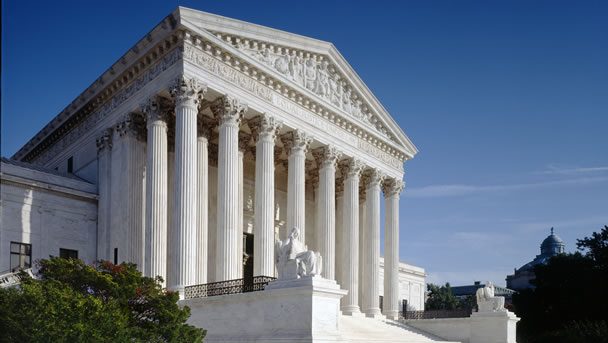Created Equal: Does SCOTUS ruling on the Colorado insurrection clause set a dangerous precedent?
University of Michigan Law Professor Richard Primus returns to “Created Equal” to describe the Supreme Court’s thinking behind the case.

U.S. Supreme Court building
Early this month, the U.S. Supreme Court unanimously ruled to restore Donald Trump to the 2024 presidential primary ballot in Colorado and other states, rejecting various attempts to ban the Republican former president over the Capitol riot.
The decision, which came a day before the Super Tuesday primaries, said that states cannot invoke a post-Civil War constitutional provision to keep presidential candidates from appearing on ballots. Instead, the court wrote in an unsigned opinion, that power resides with Congress.
Read more: Are voters’ rights at risk if Trump is kept off Colorado ballot?
In addition to Colorado, the ruling ended efforts in Illinois, Maine and other states to kick Trump — the front-runner for his party’s nomination — off the ballot because of his attempts to undo his loss in the 2020 election to Democrat Joe Biden, culminating in the Jan. 6, 2021, attack on the Capitol.
University of Michigan Law Professor Richard Primus returned to Created Equal on Tuesday to describe the Supreme Court’s thinking behind the case, and why it may set a dangerous precedent for future elections.
The Associated Press contributed to this report.
Subscribe to Created Equal on Apple Podcasts, Spotify, Google Podcasts, NPR.org or wherever you get your podcasts.
Guest:
Richard Primus is a law professor at the University of Michigan and a senior editorial adviser of the Journal of American Constitutional History. He says the Supreme Court’s decision didn’t deny that Donald Trump was an insurrectionist.
“It lets stand Colorado’s judgement on the facts that he participated in an insurrection and just said the state can’t have the authority to make that a reason to keep him off the ballot,” Primus said.
Listen to Created Equal with host Stephen Henderson weekdays from 9-10 a.m. ET on 101.9 WDET and streaming on-demand.
Trusted, accurate, up-to-date.
WDET strives to make our journalism accessible to everyone. As a public media institution, we maintain our journalistic integrity through independent support from readers like you. If you value WDET as your source of news, music and conversation, please make a gift today.
